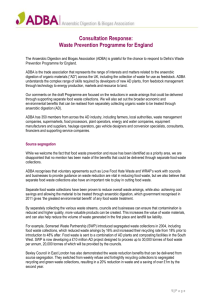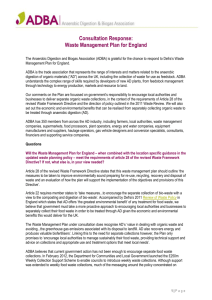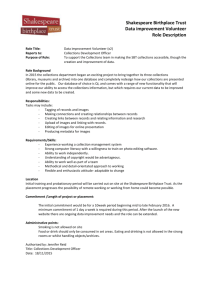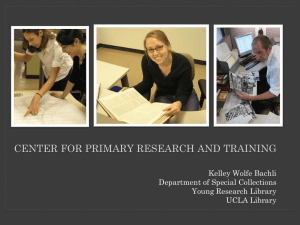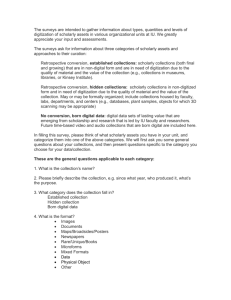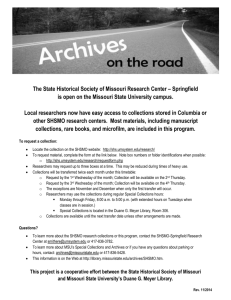140429-Waste-Management-Inquiry-2
advertisement
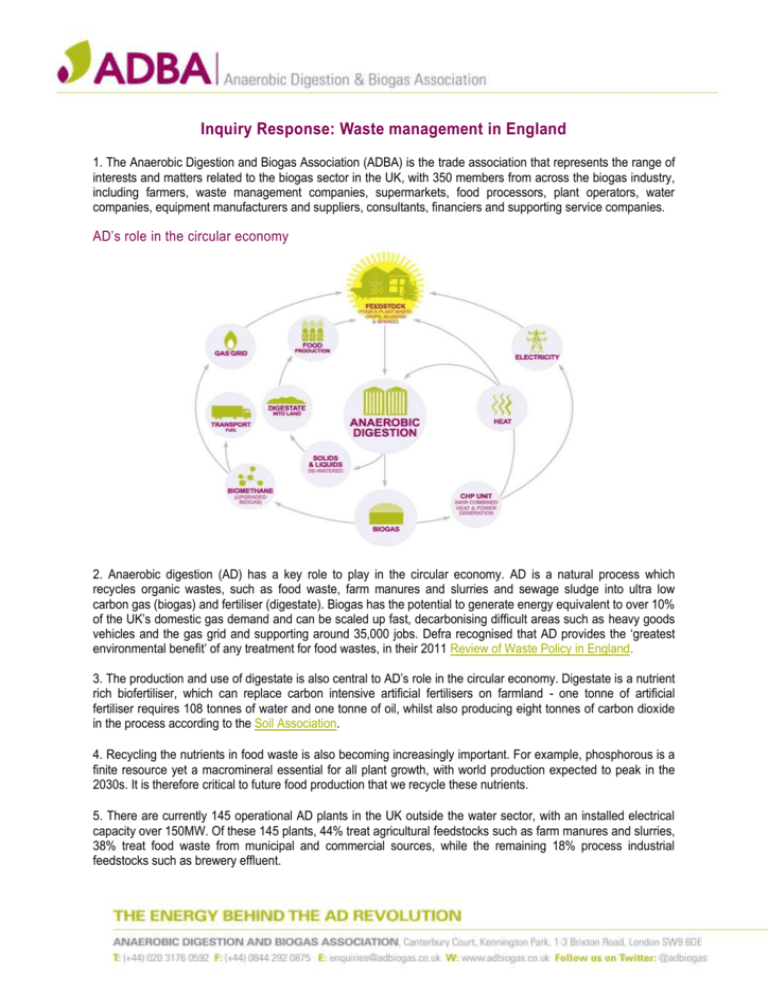
Inquiry Response: Waste management in England 1. The Anaerobic Digestion and Biogas Association (ADBA) is the trade association that represents the range of interests and matters related to the biogas sector in the UK, with 350 members from across the biogas industry, including farmers, waste management companies, supermarkets, food processors, plant operators, water companies, equipment manufacturers and suppliers, consultants, financiers and supporting service companies. AD’s role in the circular economy 2. Anaerobic digestion (AD) has a key role to play in the circular economy. AD is a natural process which recycles organic wastes, such as food waste, farm manures and slurries and sewage sludge into ultra low carbon gas (biogas) and fertiliser (digestate). Biogas has the potential to generate energy equivalent to over 10% of the UK’s domestic gas demand and can be scaled up fast, decarbonising difficult areas such as heavy goods vehicles and the gas grid and supporting around 35,000 jobs. Defra recognised that AD provides the ‘greatest environmental benefit’ of any treatment for food wastes, in their 2011 Review of Waste Policy in England. 3. The production and use of digestate is also central to AD’s role in the circular economy. Digestate is a nutrient rich biofertiliser, which can replace carbon intensive artificial fertilisers on farmland - one tonne of artificial fertiliser requires 108 tonnes of water and one tonne of oil, whilst also producing eight tonnes of carbon dioxide in the process according to the Soil Association. 4. Recycling the nutrients in food waste is also becoming increasingly important. For example, phosphorous is a finite resource yet a macromineral essential for all plant growth, with world production expected to peak in the 2030s. It is therefore critical to future food production that we recycle these nutrients. 5. There are currently 145 operational AD plants in the UK outside the water sector, with an installed electrical capacity over 150MW. Of these 145 plants, 44% treat agricultural feedstocks such as farm manures and slurries, 38% treat food waste from municipal and commercial sources, while the remaining 18% process industrial feedstocks such as brewery effluent. 6. There is still significant potential for the industry to expand though, with around a third of food waste still landfilled and only 7% processed through AD. Is AD the best option available to deal with food and other biowaste? 7. As the government’s 2011 Review of Waste Policy in England stated, AD offers the greatest environmental benefit of the main options for treating food waste. 8. For each tonne of unavoidable food waste treated through AD rather than landfilled, 500kg CO2 is avoided. As noted above, AD recycles the nutrients in food and other biowastes back to land, contributing to food security. This was recognised in the report by the Ellen MacArthur Foundation titled “Towards the Circular Economy”. is especially noteworthy given we are rapidly approaching peak phosphorus production – expected to be reached in the 2030s. Phosphorus is a central ingredient in artificial fertiliser, but it is a finite resource and after 2033 levels of phosphorus will begin to fall, which, coupled with a sharply rising global population, will put significant pressure on food production. Easing this pressure by supporting the growth of the digestate market, which replaces the need for artificial fertiliser, therefore has obvious benefits when considering food security. 9. Demonstrating the wider economic benefits of treating food waste through AD, WRAP has calculated that the nutrients in unavoidable household food waste alone would be worth £50 million if spread to land as fertiliser, which anaerobic digestion facilitates. With mature markets the true worth of digestate, including its value as a ‘green’ product and the benefits it can offer to soil structure would be significantly higher still. 10. Creating quality biofertilisers under the existing quality protocol requires source segregation of food waste. If food waste is not source segregated then expensive and burdensome environmental waste permits are required to spread digestate on land.. 11. Separate food waste collections also have proven to reduce overall waste arisings, while also achieving cost savings. By separately collecting the various waste streams, councils and businesses can ensure that contamination is reduced and higher quality, more valuable products can be created. This increases the value of waste materials, and can also help reduce the volume of waste generated in the first place and landfill tax liability. 12. For example, Somerset Waste Partnership (SWP) introduced segregated waste collections in 2004, including food waste collections, which reduced waste arisings by 16% and increased their recycling rate from 18% prior to introduction to 48% after. Food waste is sent to a combination of AD plants and composting facilities in the South West. SWP has now developed a £10 million AD project to process up to 30,000 tonnes of food waste per annum, 20,000 tonnes of which will be provided by the councils. Has the government’s Anaerobic Digestion Strategy and Action Plan substantially increased the use of AD? 13. Defra’s Anaerobic Digestion Strategy and Action Plan (ADSAP) has had a clear beneficial role in boosting the AD sector in the last three years – increasing recognition of the benefits of the technology, and supporting targeted actions to address financial, technical and regulatory obstacles holding back the growth of the sector. The industry has grown by 168% since its publication, with 145 plants (outside the sewage sector) in operation today. 14. While ADSAP has helped remove barriers in the sector since 2011, it is nonetheless clear that greater coordination of policy is imperative if the AD industry is to realise its potential. This is particularly evident in waste collection policy, which falls within the remit of the Department for Communities and Local Government (DCLG). While Defra has been proactive in supporting WRAP’s work on separate food waste collection trials, DCLG has been keen to give councils a steer towards weekly residual collections. 15. In February 2012, DCLG launched the £250m Weekly Collection Support Scheme to enable councils to introduce weekly waste collections. Although support was extended to weekly food waste collections, much of the messaging around the policy concentrated on supporting weekly residual collections, and this undoubtedly sent mixed messages to councils and the public about collection policy. 16. ADBA believes that this problem of coordination can be tackled through the establishment of an Office for Resource Management, which would sit across government and provide strategic oversight on crucial resource management issues that fall outside Defra’s direct remit. To properly consider Defra’s waste policy capacity, the Committee will need to take a wider view of policy across government. 17. Defra must however continue to deliver a number of important actions for the waste management and AD sectors – their work, along with WRAP, to collate robust data on national waste infrastructure, for example, has proved invaluable. Effectively gathering information on both municipal and commercial and industrial waste as essential to being able to effectively plan tomorrow’s waste infrastructure. For organic waste, continuing and expanding the Annual Survey of Organics Recycling Industry should be maintained and expanded. Is the introduction of a ban on landfill and/or incineration feasible in England? 18. ADBA believes that a ban on sending biodegradable waste to landfill, accompanied by separate food waste collections is both desirable and feasible in England. Such legislation, introduced through a phased approach, would encourage the development of infrastructure to deal with the waste diverted from landfill, such as AD, while providing economic opportunities through the supply chain. ADBA believes that government must closely explore the lessons from Scotland, where the devolved administration has introduced legislation banning the sending of organic waste to landfill by 2020, alongside mandating separate food waste collections for both councils and businesses. 19. As well as providing a clear signal of the direction of policy towards making better use of resources, a ban will encourage the development of appropriate infrastructure to deal with the added quantity of waste that must be dealt with after it is diverted from landfill. 20. The example of Scotland is indeed instructive when considering how such a ban could be made to work in England. Alongside the ban on organic waste to landfill by the end of the decade, councils (except those in rural areas) and businesses generating certain quantities of food waste are required to have their food waste separately collected by 2015. In order to give councils and businesses time to adopt, a roadmap should be set out to move towards a full ban. 21. This in turn will encourage the development of treatment infrastructure such as AD plants in the five year gap, as developers and investors will have certainty that quality feedstock will be available. This goal has been boosted in Scotland by support under the Zero Waste Plan: the Scottish Government has provided £20m funding to councils and businesses, helping to fund food caddies, communications to local residents, as well as supporting the development of AD and composting infrastructure to treat the greater quantity of available food waste. Initial signs from Scotland are positive – business has generally realised the cost savings that can be made from separating food waste and have been keen to comply with the regulations, while over 1m Scottish households now have access to a food waste collection service. 22. ADBA would also offer strong backing to the recommendation within the recent House of Lords report into food waste prevention at the EU level, which calls for the development of a best practice model for source segregated waste collections for councils in England. 23. Page 50 of the report notes that ‘the provision of separate food waste collections remains…an important aspect of moving food waste off the bottom rung of the hierarchy. We therefore note with interest the example of the Scottish Government in making separate collections obligatory for urban businesses. We recommend that the UK Government develop a best practice model for such separate collection, at both household and commercial level, for Councils throughout England’. Does England have the right balance of waste treatment technologies between anaerobic digestion, incineration with energy recovery and gasification to produce fuel/heat/power? 24. ADBA cannot comment on the deployment of other technologies, but it is worth noting that there is still significant scope for the AD industry to expand. At present, only 7% of food waste is processed through AD, while around a third is still landfilled. The introduction of separate food waste collections would go some way to redressing this balance, reducing the quantity of waste arisings while proving quality feedstocks suitable for treatment through AD. Even if strong waste reduction strategies are followed, there will still be a clear requirement for further AD capacity, assuming that the food waste which remains is to be processed through the best available technology. 25. ADBA would also emphasise the fact that AD offers particular energy security that other technologies cannot deliver – baseload generation, with the ability to upgrade biogas to “biomethane”, a renewable natural gas equivalent, and inject it into the gas grid. Should England’s national recycling targets be higher than those stipulated by the EU, and what are the pros and cons of compulsory household waste recycling? 26. ADBA believes that ambitious recycling targets provide investors with the certainty needed to deliver capital intensive projects such as new waste infrastructure. 27. As we have set out above, introducing source segregated waste collection at the household level cuts waste arisings, improves recycling rates and will boost the AD sector, and should therefore be strongly supported.
